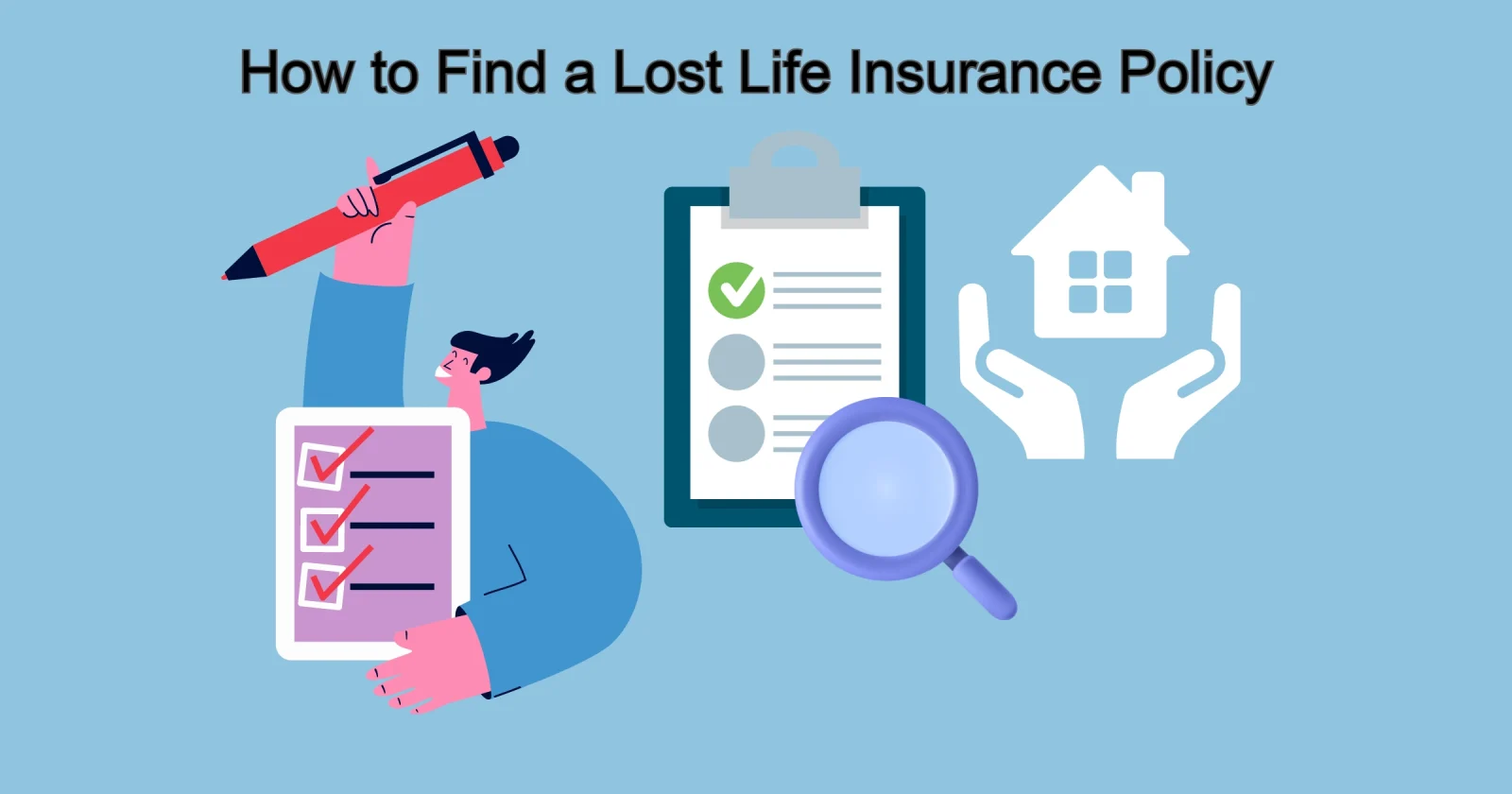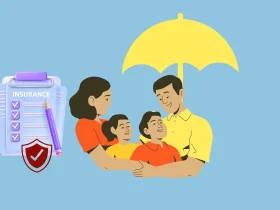Losing track of a life insurance policy can happen more easily than you think, and finding the lost life insurance policy can be overwhelming. Whether you’re trying to locate your policy or help a loved one find theirs, especially after they’ve recently passed away, there are actionable steps you can take. In this guide, we’ll walk you through these steps to ensure you or your loved ones can access the life insurance benefits you’re entitled to, even if you’re unsure where the policy is stored. With the right approach, you can track down that missing policy and secure the financial protection it provides.
What is life insurance?
Life insurance is a contract between an individual (the policyholder) and an insurance company. The insurer agrees to pay a designated beneficiary a sum of money upon the policyholder’s death or after a specified period. The policyholder pays regular premiums during their lifetime to maintain the coverage. This agreement guarantees financial security for the beneficiaries in exchange for the premiums paid.
Why is it Important to Have Life Insurance?
What is lost life insurance?
“Lost life insurance” refers to a life insurance policy that has been forgotten, misplaced, or unclaimed after the policyholder’s death. Sometimes, beneficiaries might not know about the policy, or the policy documents might have been misplaced over time. This may result in the life insurance benefits remaining unclaimed.
12 Tips for Finding a Lost Life Insurance Policy
1. If the policyholder is still alive, you can request a new copy of the policy
But what if a deceased loved one’s policy is missing?
Many people don’t think about the location of a life insurance policy until after their loved one has passed away. According to the National Association of Insurance Commissioners (NAIC), tens of millions of dollars in life insurance benefits go unclaimed yearly because insurance companies don’t know that the policyholder has passed away, and beneficiaries never file a claim. Some people might think they need the policy document to claim the death benefit, but that’s not always true.
If your loved one has passed away, here are some methods to help you find a lost life insurance policy.
2. Go through the deceased’s paperwork and mail
When finding a lost life insurance policy, check the deceased person’s mail for any life insurance-related paperwork. Bank statements might also reveal premium payments made to a life insurance company. Additionally, tax returns could indicate cash value interest, insurance company payments, or policy distributions. Once you identify the insurance company, you can contact them directly to report your loved one’s passing and get assistance filing a claim.
- Go through physical and digital files, including bank safe deposit boxes and other storage areas, to locate any insurance-related documents.
- Check bank statements for any checks or automatic payments to life insurance companies.
- Review the deceased’s mail and email for any notifications regarding premiums or dividends. Even if the policy payments are up-to-date, the insurance company may send yearly updates on the policy’s status or dividend information.
- Check the deceased’s tax returns from the past two years for any records of interest income or payments made to life insurance companies. Life insurance companies often pay interest on money in permanent policies and charge interest on loans against the policy.
- Also, review the application for any life insurance policy you find, as it usually lists other policies the person had at the time.
3. Reach out to financial advisors and other key individuals in their life
Often, a trusted financial advisor, insurance agent, accountant, or personal lawyer will have information about your loved one’s insurance policy. It’s also good to ask spiritual advisors, friends, and other close contacts who might know the policy.
4. Check with your loved one’s auto and home insurance companies
People often buy multiple types of insurance from the same company. If you find documents related to your loved one’s car or home insurance, you can contact those companies to see if they also have a life insurance policy for that person.
5. Contact employers
Many employers offer group life insurance to their employees. Even if your loved one was retired, it’s a good idea to check with their former employer to see if the group life insurance policy is still in effect.
6. Get in touch with trade unions and other professional associations
Trade unions, veterans’ associations, alumni groups, and other professional or social organizations sometimes provide group life insurance to their members. If your loved one was a member of any of these organizations, it’s a good idea to contact them to check if a life insurance policy is in place.
7. Check online databases
There are various online tools available to help you find a lost life insurance policy. The MIB Underwriting Group database keeps records of life insurance applications, which might indicate an active policy. The NAIC Life Insurance Policy Locator allows you to request a search of records from participating life insurance companies to find your loved one’s information. Additionally, the National Association of Unclaimed Property Administrators (NAUPA) operates MissingMoney.com, a site listing unclaimed life insurance benefits that were turned over to state governments. If you discover benefits linked to your loved one, you may still be able to collect on them.
Moreover, The National Association of Insurance Commissioners (NAIC) offers a free online tool called the Life Insurance Policy Locator Service, which can help you find life insurance policies. After submitting a request, the NAIC contacts participating companies to check if they have a policy in the deceased’s name. If a policy is located, the company will contact you if you’re the designated beneficiary or authorized to receive the details.
To use the service, you’ll need information from the death certificate, such as the social security number, full legal name, date of birth, and date of death. Click here to use the service
8. Reach out to your state’s insurance commissioner’s office and the state department of unclaimed property
Some U.S. states offer online databases that allow residents to search for lost life insurance policies.If your state doesn’t have this option, you can still contact the state insurance commissioner’s office to request a search for your loved one’s policy. When life insurance benefits go unclaimed, the insurance company usually transfers the funds to the state treasurer. You can find contact details for each state treasurer on the National Association of Unclaimed Property Administrators’ website.
9. Check public records
Public records might help in finding a lost life insurance policy. Start by checking your loved one’s will. If they went through a divorce, the life insurance policy might also be listed as an asset in the divorce proceedings.
11. Check safe deposit boxes and computer drives for any stored life insurance documents
People often store important documents, such as life insurance policies, in safe deposit boxes. To access someone else’s safe deposit box, you typically need a court order. The same applies to cloud-based or encrypted computer documents that require a software company’s assistance to unlock.
12. Remember that fee-based services are available if you need additional help
Despite your best efforts, finding a life insurance policy after a loved one has passed away can sometimes feel overwhelming. In such cases, it’s useful to know that MIB, an insurance membership corporation, offers a fee-based service that may help you find evidence of life insurance applications, though it won’t confirm if a policy was actually purchased. Additionally, several private companies offer paid services to assist in the search for a lost life insurance policy.
Conclusion
Remember, finding a lost life insurance policy might take some time and effort, but it is possible with the right approach. Even if you can’t find the policy document, having basic information like the insurance company’s name or policy number can often be enough to start a claim. Don’t lose hope—follow the steps outlined in this guide to secure the financial protection provided by a life insurance policy.
FAQs
How to find a lost life insurance policy for free?
To find a lost life insurance policy for free, start by searching through personal records, contacting insurance companies, and using online policy locator tools like those offered by the NAIC. Check with employers, associations, and state resources, and consult public records or financial advisors. For more detailed steps, refer to the guide above.
What happens if I lost my life insurance policy?
What happens to lost life insurance if the insurer leaves business?
If you’re trying to find a lost life insurance policy and suspect that the insurance provider no longer exists, start by verifying whether the company’s name has changed, as this might lead to some confusion.
If you believe the deceased’s life insurance provider no longer exists, they may have received a similar replacement policy or a refund. You can get more details on the FSCS website. The Financial Services Compensation Scheme (FSCS) is there to help customers of financial firms that have gone out of business. If the company the deceased was dealing with has failed and can’t pay claims, the FSCS can step in to provide compensation.
Is life insurance for life or death?
While life insurance is typically viewed as a way to support your beneficiaries after you pass away, some policies offer benefits you can use while you’re still alive. These benefits might help you pay down debt, cover mortgage payments, or finance major expenses. However, not every policy provides early access to these funds, so it’s important to check your specific policy to understand what options are available.
What is the age limit for life insurance?
The minimum age to qualify for term life insurance is 18 years. Conversely, the maximum age for getting a term insurance plan is typically 65 years.
What is the importance of having insurance?
Insurance plays a key role in the life of the insured. Here’s why:
1. Financial Protection for FamiliesInsurance shields the insured’s family from financial burdens during unexpected events, ensuring they’re taken care of.
2. Peace of Mind in Uncertainty
Life is unpredictable, but insurance helps ease financial worries during injuries, illnesses, or death, reducing stress.
3. Security for the Future
Insurance provides crucial financial security, giving families the coverage they need to move forward confidently.
4. Preparedness for Emergencies
Insurance offers peace of mind during emergencies, so there’s no need to scramble for funds or panic.
5. Support for Living Standards
Insurance funds help cover children’s education expenses and maintain the family’s standard of living.








Leave a Reply